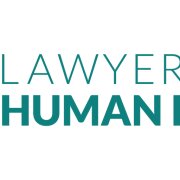Best Citizenship Lawyers in Johannesburg
Share your needs with us, get contacted by law firms.
Free. Takes 2 min.
List of the best lawyers in Johannesburg, South Africa
About Citizenship Law in Johannesburg, South Africa
Citizenship law in Johannesburg, South Africa, is governed by national legislation under the South African Citizenship Act. This law outlines the regulations and criteria for acquiring, holding, and renouncing South African citizenship. Johannesburg, as a major city within the country, follows these national guidelines, which apply to everyone seeking citizenship across South Africa. Citizenship can be obtained by birth, descent, or through naturalization processes for qualifying foreign nationals. The legal framework is designed to ensure fair access while maintaining the country's sovereign interests.
Why You May Need a Lawyer
There are several situations where legal advice might be necessary when dealing with citizenship issues in Johannesburg. Obtaining citizenship can be a complex process, often requiring expert interpretation of the law and detailed paperwork. Common scenarios include individuals seeking naturalization, those needing to rectify discrepancies in documentation, people dealing with citizenship renunciation or loss, and individuals who wish to understand the implications of dual citizenship. Lawyers specializing in citizenship can provide advice and representation to navigate these potential challenges effectively.
Local Laws Overview
The key aspects of local laws regarding citizenship in Johannesburg align with the national legislation in South Africa. The South African Citizenship Act determines who is eligible for citizenship by birth, descent, or naturalization. The process of naturalization involves strict requirements, including residence tenure, language proficiency, and a background check. Additionally, South Africa permits dual citizenship under certain conditions but requires citizens to apply for retention of citizenship when acquiring another nationality. Understanding these regulations is crucial for anyone navigating citizenship in Johannesburg.
Frequently Asked Questions
What are the different ways to acquire South African citizenship?
Citizenship may be acquired by birth if born in South Africa to at least one South African parent, by descent if born outside South Africa to a South African parent, or through naturalization if a foreign national meets specific residency and legal requirements.
Can I hold dual citizenship in South Africa?
Yes, South Africa allows dual citizenship. However, South African citizens must apply to retain their citizenship before acquiring another nationality; if not, they may lose their South African citizenship.
How long must I reside in South Africa to apply for naturalization?
Applicants typically need to have been residing in South Africa for a continuous period of five years on a permanent residence permit immediately before applying for naturalization.
Is there an age limit for applying for citizenship?
While there is no specific age limit, the process and requirements might differ for minors, particularly for children born to foreign nationals residing in South Africa or those applying for citizenship through descent.
What documents are required for a citizenship application?
Documentation generally includes a valid residence permit, identity documents, proof of residency duration, character references, language proficiency evidence, and other personal records, depending on the application category.
Can a citizenship application be denied, and why?
Yes, applications may be denied due to incomplete documentation, failure to meet residency or character requirements, issues uncovered during background checks, or other legal disqualifications.
Can I lose my South African citizenship once acquired?
South African citizenship can be lost if a citizen voluntarily acquires a foreign nationality without prior retention approval, or if certain acts contrary to South Africa’s interests are committed.
How do I appeal a refused citizenship application?
An appeal can often be lodged directly with the Department of Home Affairs or through legal representation, providing additional documentation or rectifying any procedural errors.
What role does the Department of Home Affairs play in citizenship processes?
The Department of Home Affairs is responsible for all citizenship matters, including processing applications, issuing citizenship certificates, and managing appeals and documentation.
How does one renounce South African citizenship?
Renunciation involves formally applying to the Department of Home Affairs, fulfilling all administrative requirements, and confirming the consequences of renouncing citizenship under South African law.
Additional Resources
For those seeking more information or assistance, consider consulting the following:
- Department of Home Affairs: The primary government body managing citizenship applications.
- Legal Aid South Africa: Offers free legal assistance and advice for qualified individuals.
- South African Human Rights Commission: Can offer guidance on citizenship-related matters, particularly with respect to rights and disputes.
- Immigration and Citizenship Lawyers: Private practitioners offering expert legal advice and services in citizenship law.
Next Steps
If you believe you require legal assistance regarding citizenship in Johannesburg, it's advisable to consult with a qualified lawyer specializing in immigration and citizenship law. Start by gathering all pertinent documentation and outlining your specific questions or concerns. You may contact the Department of Home Affairs for official forms and guidance. Additionally, consider seeking local legal aid services if cost is a concern, as they may offer pro bono or reduced-fee services.
Lawzana helps you find the best lawyers and law firms in Johannesburg through a curated and pre-screened list of qualified legal professionals. Our platform offers rankings and detailed profiles of attorneys and law firms, allowing you to compare based on practice areas, including Citizenship, experience, and client feedback.
Each profile includes a description of the firm's areas of practice, client reviews, team members and partners, year of establishment, spoken languages, office locations, contact information, social media presence, and any published articles or resources. Most firms on our platform speak English and are experienced in both local and international legal matters.
Get a quote from top-rated law firms in Johannesburg, South Africa — quickly, securely, and without unnecessary hassle.
Disclaimer:
The information provided on this page is for general informational purposes only and does not constitute legal advice. While we strive to ensure the accuracy and relevance of the content, legal information may change over time, and interpretations of the law can vary. You should always consult with a qualified legal professional for advice specific to your situation.
We disclaim all liability for actions taken or not taken based on the content of this page. If you believe any information is incorrect or outdated, please contact us, and we will review and update it where appropriate.















